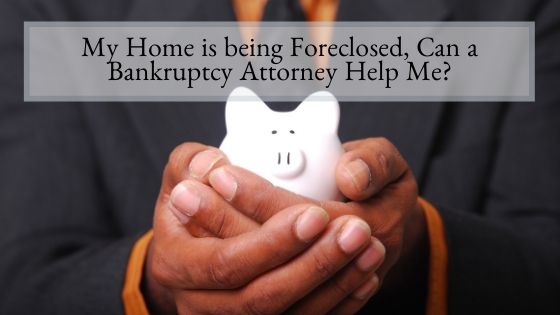Having your home foreclosed upon can be a very scary process. But if you would like to keep your home or delay the process, filing for bankruptcy may help your situation.
First of all, a foreclosure takes place after a person has fallen behind on mortgage payments. In most cases, six months or more. But before the lender can take the home and sell it, a certain procedure must be followed. Foreclosure laws vary from state to state. However, foreclosure does take time, which gives the homeowner time to take certain actions. If you have already tried such alternative methods as forbearance and failed, bankruptcy may be the only choice available.
Bankruptcies often move slow. You could ask for a loan forbearance, but there’s no guarantee it will be granted. It’s time to move onto the next options:
Automatic Stays
Automatic stays can be issued immediately and the process directs lien holders to immediately cease all activities throughout the Chapter 7 or Chapter 13 process. The automatic stay can give an addition three to four months to work with. But don’t count on this because lien-holders can file their own motion to have the stay lifted.
How Can Chapter 13 Help?
People often want to remain in their home as long as they can during a foreclosure. In most cases, the will exhaust all means to ensure this takes place. Chapter 13 bankruptcy protection is the only sure way to keep a person in their home. Chapter 13 allows individuals to pay off arrears over the proposed plan. In most cases, this is for five years. But in order to qualify, you will need to have enough income to make the payments. As long as the payments are made on time during the plan period, you won’t have to worry about your house being taken.
If you have a second or third mortgage on your home, Chapter 13 bankruptcy may also help relieve those payments. For instance, if the first mortgage on your home is secured by the home’s entire value, the value may have dropped and no equity may remain. If this is the case, Chapter 13 allows the second and third mortgages to be deemed unsecured debt. Under Chapter 13, it is often doesn’t have to be paid back at all.
There is also something called non-exempt equity. During the recession, home equity was almost non-existent. It was highly unusual to see people filing for bankruptcy to have equity in their homes. Since the recession, home values have steadily climbed and now bankruptcy filers must consider using their state’s homestead exemption to protect the equity in the home.
If the homestead exemption isn’t enough to keep the home, the homeowner will be forced to pay whatever the value is in the non-exempt property.
The bottom line is homeowners should seek out help from a good bankruptcy lawyer long before it gets to the point of foreclosure. This will avoid all problems in the long run. While bankruptcy is an option when it comes down to foreclosures, there can also be drawbacks. Your lender also has attorneys that will work do everything in their power to take your home.
If you can’t afford a bankruptcy attorney at the present, there are a number of websites you can go to to get more information regarding foreclosure and bankruptcy. With foreclosure, time is of the essence. You should explore all of you options as quickly as possible. After reading a few books or speaking with an attorney, you will be better able to explore your own options and make the best choices.
Call our law offices today at any of our convenient locations and get a free consultation.
Arlington (817) 522-4451
Dallas (972) 362-6848
Fort Worth (817) 764-1375
Plano (972) 354-4602
Cedar Hill (972) 338-9427
McKinney (469) 522-3688
Lewisville (972) 354-4605
Frisco (972) 725-7681
Grapevine (817) 835-8677
Irving (972) 354-4610
Keller (817) 204-0904
Garland (214) 572-2251
Denton (940) 222-4060
Addison (972) 564-8108
You can also contact us online by using our quick contact form.











